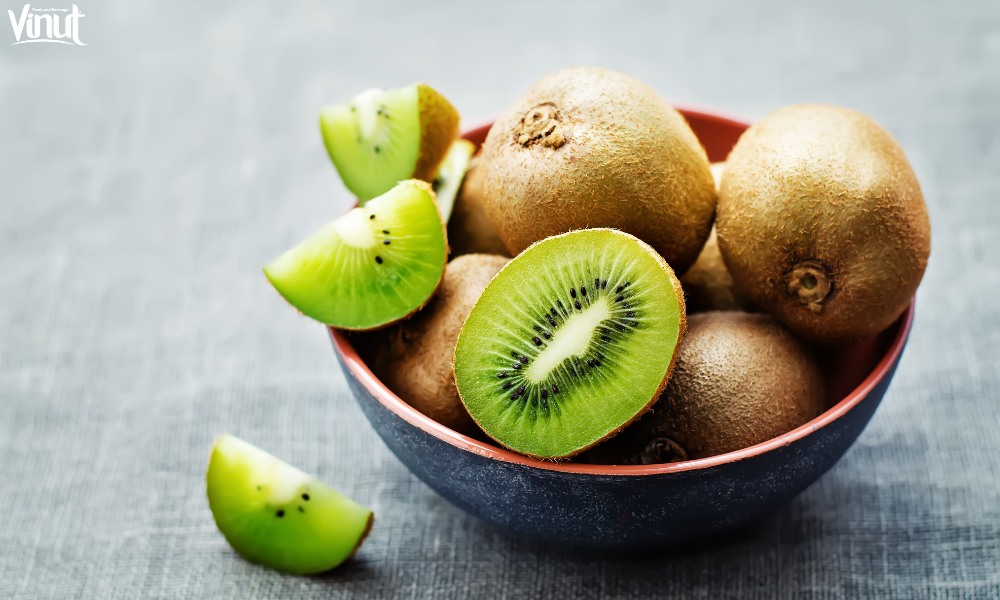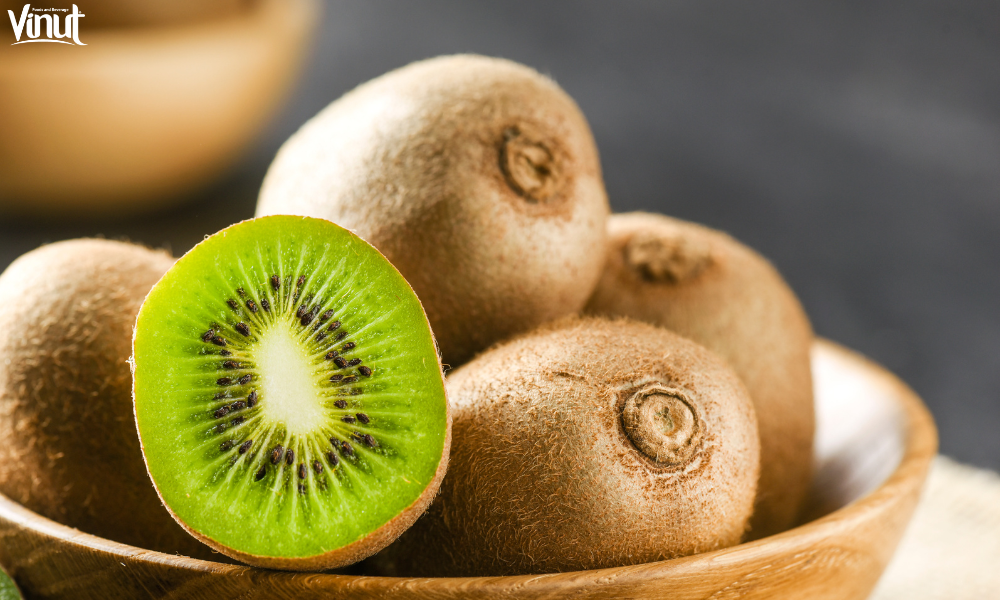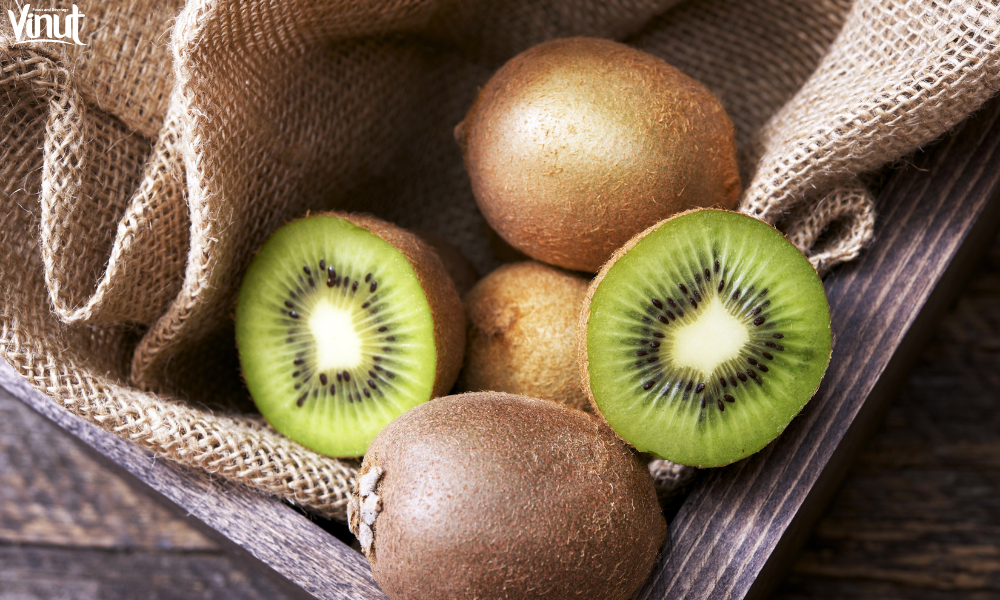In the world of fruits, the kiwi often flies under the radar, overshadowed by more common powerhouses like apples and oranges. However, this small, fuzzy fruit packs a punch of taste and nutrition that deserves a spotlight. Kiwi, or kiwifruit, with its vibrant green flesh and unique tangy-sweet flavor, is not only a delightful addition to various dishes but also a powerhouse of vitamins, minerals, and other health benefits.
In this blog post, VINUT will explore the origins of kiwi, its health benefits, culinary uses, and some tips on how to incorporate this wonder fruit into your diet.
Origins and Varieties
The kiwi fruit, originally known as the Chinese gooseberry, hails from the Yangtze River valley of northern China. The fruit made its way to New Zealand in the early 20th century, where it was renamed in honor of the national bird, the kiwi, because of its small size, brown skin, and fuzzy texture. Today, New Zealand is one of the leading producers of this fruit, along with Italy, China, and Chile.

There are several varieties of this fruit, but the most common is the Hayward. This variety is recognizable by its brown, hairy skin and bright green flesh speckled with tiny black seeds. Another increasingly popular variety is the golden, which has a smooth, bronze skin, and a golden-yellow flesh with a sweeter taste.
Health Benefits
Kiwi is a nutritional powerhouse. It is an excellent source of vitamin C, surpassing even oranges and lemons. This essential vitamin plays a crucial role in immune system support, skin health, and even the absorption of iron from plant-based foods. It is also rich in dietary fiber, which promotes digestive health and can aid in weight management by keeping you fuller for longer. Additionally, it provides vitamin K, vitamin E, folate, and potassium, making it beneficial for heart health, bone density, and overall well-being.

Antioxidants are another benefit, containing a variety of them, including vitamin E and polyphenols. These compounds can help neutralize harmful free radicals in the body, reducing oxidative stress and potentially lowering the risk of chronic diseases such as heart disease and cancer.
Culinary Uses
The kiwi’s unique sweet-tart flavor and vibrant color make it a versatile ingredient in the kitchen. It can be eaten on its own or used to enhance the flavor and nutrition of salads, smoothies, yogurts, and desserts. When selecting these fruits, look for fruits that yield slightly to pressure, which indicates ripeness. To speed up the ripening process, place them in a paper bag with bananas or apples, which emit ethylene gas, encouraging ripening.

One popular way to enjoy this fruit is in a fruit tart, where its bright flavor can balance the sweetness of other fruits. Kiwi can also add a tropical twist to a smoothie, pairing well with strawberries, bananas, and oranges. For a savory application, consider adding kiwi to a salsa to accompany grilled fish or chicken, providing a refreshing contrast to the smoky flavors.
Easy Ways to Include Kiwi in Your Diet
Integrating it into your diet is easy and beneficial. Start your day with a kiwi-banana smoothie for a nutritious breakfast, or add sliced kiwi to your morning cereal or oatmeal. For a healthy snack, kiwi slices dipped in dark chocolate can satisfy sweet cravings while providing a dose of antioxidants. Kiwi can also be a refreshing addition to water or iced tea, infusing your drink with flavor and nutrients.

This fruit may be small, but its impact on your health and palate is immense. With its rich nutritional profile, including high levels of vitamin C, dietary fiber, and antioxidants, offers a range of health benefits from improving digestive health to boosting the immune system. Its versatility in the kitchen allows for creative culinary experiments, from sweet desserts to savory dishes. By incorporating it into your diet, you’re not only adding a burst of flavor to your meals but also contributing to your overall health and wellness.


 Juice Concentrate
Juice Concentrate Vegetable juice
Vegetable juice Juice Milk
Juice Milk Stand Up Pouches
Stand Up Pouches









